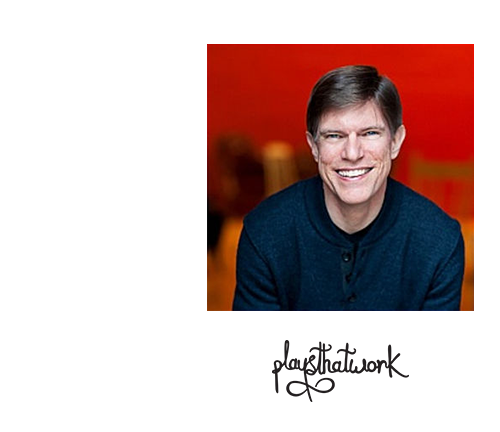Peter Gardiner-Harding
President - playsthatwork Inc. | SCP Professional Associate
Peter Gardiner-Harding is an actor, playwright, director, consultant, facilitator and simulator . . . after having pursued a career as a Chartered Accountant for 16 years. His work has led him into executive and employee development, leadership, change management, code of conduct, behavioural based learning and sales training.
The combination of Peter’s skills and training allow him to perform in ways that capture his audiences like few others, all the time speaking the language of business in a credible and relevant way. His experience as a professional facilitator, character actor and coach helps him to work collaboratively with clients and support individuals and teams in achieving their key objectives.
Peter studied at the University of Toronto (B.Comm 8T3) and later joined the Institute of Chartered Accountants of Ontario after earning the designation of Chartered Accountant – ‘85. His theatrical training was sourced at various schools in the Toronto area, after also reading theology at Trinity College, Toronto.
WHY CHARACTER SIMULATION IN STRATEGY & CULTURE?
Without sounding trite by stating the obvious, changing strategy and culture is about changing behaviour in staff. Long-term, no organization will spend resources trying to help their staff change, if no change ever comes to pass. The last twenty years have seen clients like you pushing hard on the learning industry to deliver better ways for their staff to get out there with their newly learned and changed behaviour to grow their businesses.
The learning industry has responded well, coming up with many different ways of delivering “experiential learning” through coaching, action learning projects and a myriad of different ways of simulating learners’ lives, either directly or through metaphor. For every learner, each design tests its track record against the unique and emergent learning needs that each learner brings to the experience.
Behavioural change comes more from self awareness than it does about learning or knowing a set of tools and skills to apply in certain situations. We know this because, in a seminar setting, learners are encouraged let go of their expert mindsets in favour of their learner mindsets so that they can learn to understand concepts and see how certain tools might be useful to them at certain times. However, often even just minutes later when these same learners are engaged in an activity where their own, unique workplace mindsets are activated, they can’t track to the new wisdom they’ve just learned. Feelings that arise for them in their workplace mindsets often blind them to the tools that they’ve just learned that could help them. Many simply “revert to factory settings” – engaging with the problem as they always have. Truth be told – even when they can’t acknowledge it, these learners feel their ways into their situations, rather than think their ways in. The tools that they learned only a short time ago are forgotten, or at best, ignored.
Character simulation uses theatre techniques to go straight at this issue. The simulators perform characters designed to immerse the learners in their workplace mindsets. During a simulated conversation followed by candid reflection about the emotional impact of what the learners did and how it affected the characters, learners begin to build a bridge between their wise, learner mindset-self and their felt, workplace mindset-self. This bridge, having now been built, helps make it possible for them to better access these skills when they are back in the workplace after the learning event – when they are indeed back in their workplace mindsets.
Because of this “bridge-building”, character simulations can have a lasting, meaningful effect on learners’ self awareness and through that, their changed behaviour. And through that, they can support your changed strategy and culture.Major organizations that he has worked with in Canada, the U.S., South America, Europe and England include: Adler International Learning, AGF Investments Inc., Amgen Canada Inc., AstraZeneca, BC Nurses’ Union, Biogen Idec, BMO Financial Group, Bond Brand Loyalty, Bridgepoint Health, Cdn Society of Immigration Consultants, Cervus Equipment Corp., The Directors College, Duke CE, GlaxoSmithKline Canada Inc., Halton Healthcare, HOOPP, Home Depot Canada, Humber College, Humber River Hospital, Janssen Pharmaceuticals, Korn Ferry, LHH Knightsbridge, Manulife Financial, Mackenzie Investments, Ontario College of Trades, PwC, The Quality Healthcare Network, Queen’s University, Regional Niagara Board of Health, The Rekai Centres, Rogers Publishing Canada, Rotman School of Mgt, Scotiabank & many of its affiliates, St. Michael’s Hospital, TD Canada Trust, The University Health Network & York University.
View Website
